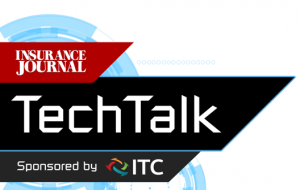
 We have talked about the many reasons why agents need to add up-to-date digital tools to stay competitive. One possible reason is the financial penalty an agency could pay in diminished value without a truly up-to-date, distinctive website and effective social media and mobile capabilities. We wanted to test the validity of that reason, and what we found is fascinating.
We have talked about the many reasons why agents need to add up-to-date digital tools to stay competitive. One possible reason is the financial penalty an agency could pay in diminished value without a truly up-to-date, distinctive website and effective social media and mobile capabilities. We wanted to test the validity of that reason, and what we found is fascinating.
Many agency principals have told me they understand the need to add or upgrade their digital tools but do not feel an urgency to do so. Their reasons generally fall into three categories:
- Those principals nearing retirement who believe their clients don’t use these tools
- Those who say their younger producers are already using them individually.
- Those who put off the investment due to cost.
An agency’s technology platform and its age are factors considered in valuation. Others include a track record of organic growth, profitability, reputation, employee productivity, and the degree of dependency on large accounts or on a certain industry.
Digitalization should not be considered a discretionary investment but rather an essential one for an agency’s long-term growth and profitability.
Hub International has been acquiring agents for many years and is arguably a pioneer in the process, not just in assigning a value to an agency but of also evaluating its long-term viability and strength. When Hub’s CEO Martin P. Hughes was asked what value he places on an agency’s degree of digitalization.
“Not one iota,” he said. “We can teach those skills, however only if they’re open to it. If they’re old school and not taking advantage of all the latest tools, then it’s a problem if they’re not open to change.”
Hughes cited other important factors including “sound leadership with a lot of runway left,” producer capability and willingness to be team players. He said that financial considerations are obviously important. However, the two most important factors for Hub when valuating companies are the “cultural pieces” and producer capability.
“Hub started this ballgame of acquiring agents, and we been very good at it because we are highly disciplined, he said. “We’ve made mistakes, but it has been because we fell in love with the market and not the people.”
What this boils down to is this: The effective use of digital tools matters, not because they add to or detract from an agency’s value but because they build name recognition, deepen client relationships and reach prospects the agency would otherwise miss. If an agency makes a conscious decision to not use digital tools at all or to continue to use an outmoded model, it will likely be less attractive to would-be buyers, not because of the lack of digital tools but because of its old-school vision and unwillingness to adapt to the connected marketplace.
Was this article valuable?
Here are more articles you may enjoy.



 AIG’s Zaffino: Outcomes From AI Use Went From ‘Aspirational’ to ‘Beyond Expectations’
AIG’s Zaffino: Outcomes From AI Use Went From ‘Aspirational’ to ‘Beyond Expectations’  US Appeals Court Rejects Challenge to Trump’s Efforts to Ban DEI
US Appeals Court Rejects Challenge to Trump’s Efforts to Ban DEI  AIG Underwriting Income Up 48% in Q4 on North America Commercial
AIG Underwriting Income Up 48% in Q4 on North America Commercial  Insurance Issue Leaves Some Players Off World Baseball Classic Rosters
Insurance Issue Leaves Some Players Off World Baseball Classic Rosters 



